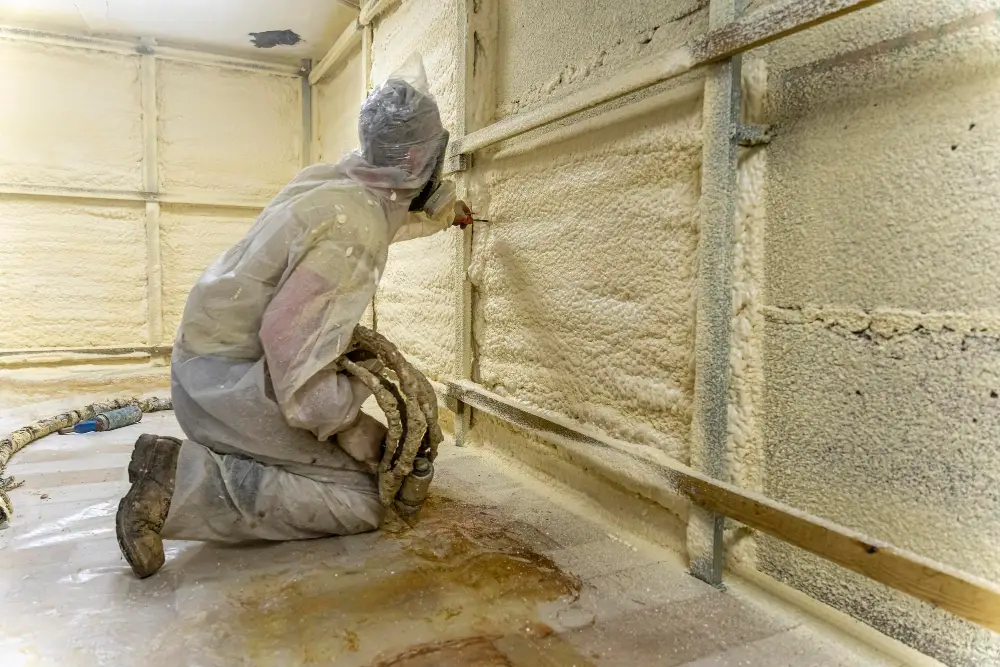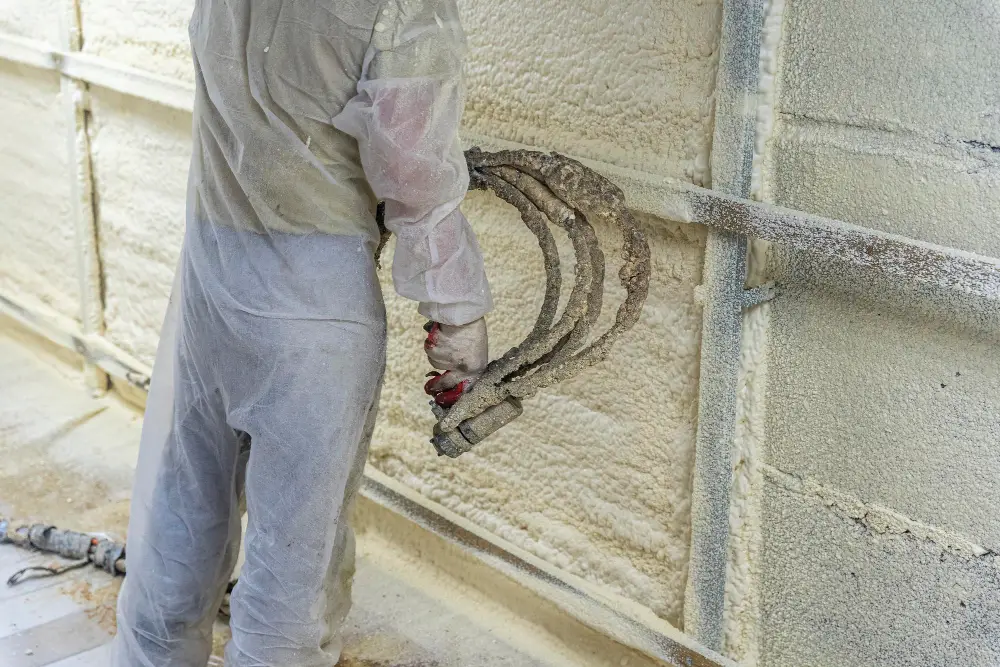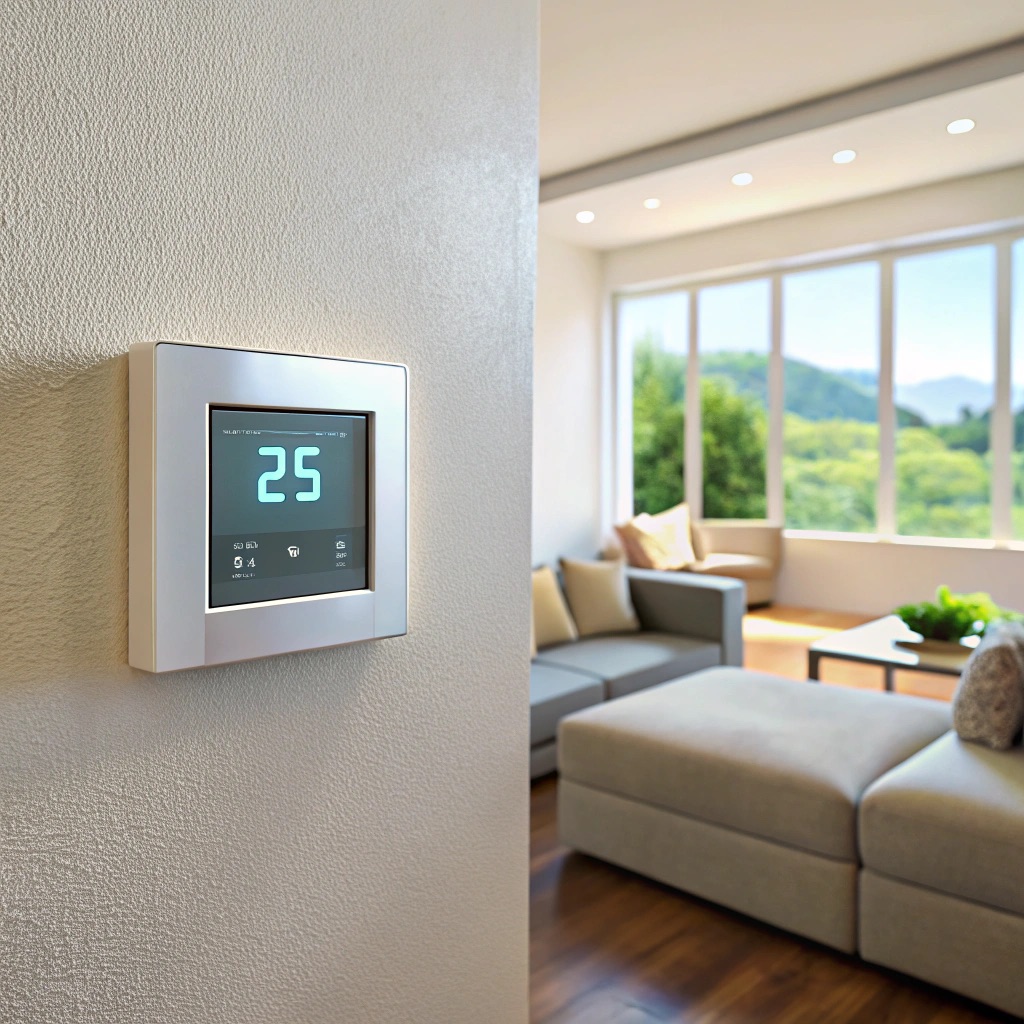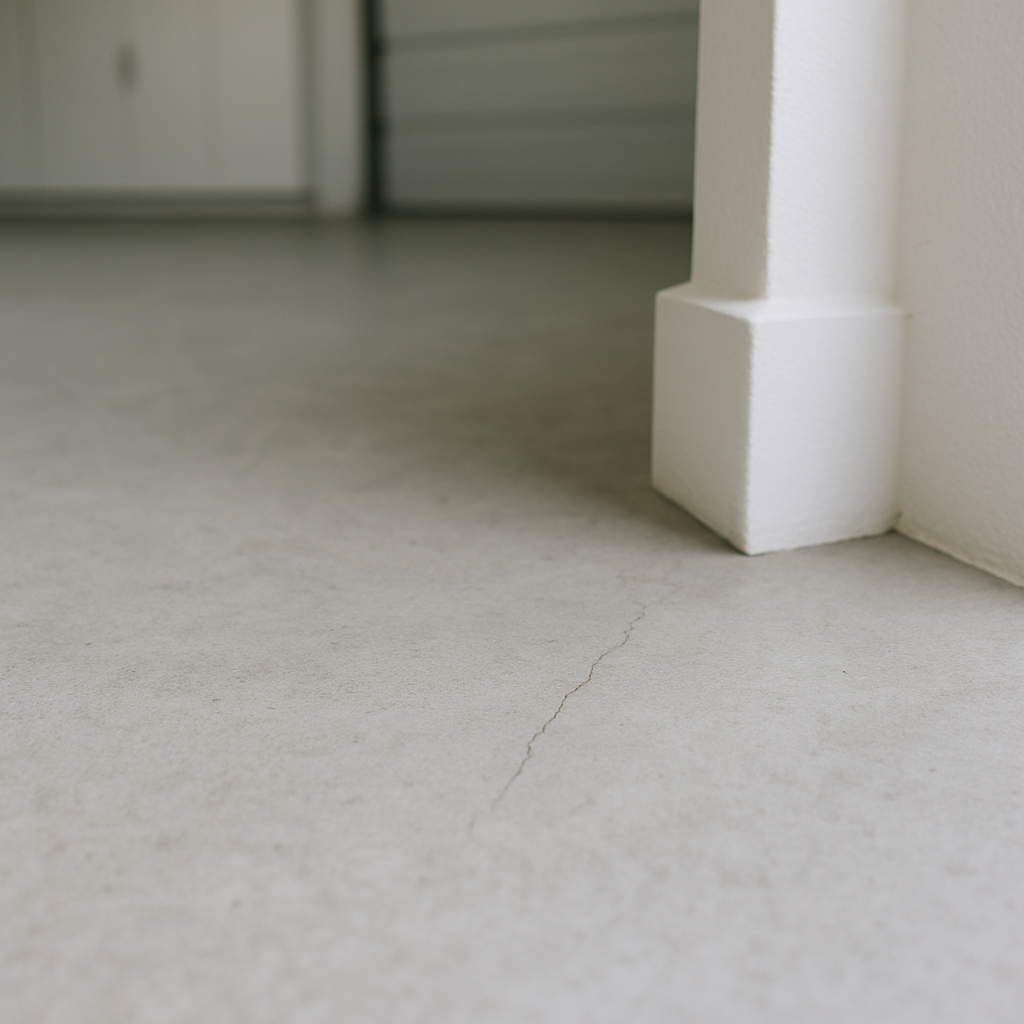Last updated on
Have you ever wondered what goes into the walls of your home and what materials can best insulate and protect your family from the outdoor elements? While fiberglass and fiber batts have long been popular choices for residential insulation, spray polyurethane foam has emerged as a premier high-performance option.
Beyond creating an incredibly air-tight seal and serving as a moisture barrier, spray foam insulation delivers benefits you may not have considered. In this article, we will explore the science behind spray foam and its many advantages to homeowners through superior energy efficiency, soundproofing, durability, and more.
By learning how this innovative material works its magic, you’ll understand why it has become the gold standard for insulation.
What's Inside
Why Select Spray Foam for Your Insulation Project?

Spray foam insulation, also known as SPF or polyurethane foam, is a type of insulation that is applied using specialized equipment and techniques. It starts as liquid chemicals, spraying onto surfaces to create a thick insulating layer. The chemicals quickly expand and harden into a dense foam that fills gaps, cracks, and voids in walls, ceilings, and floors.
Superior Energy Efficiency
Spray foam insulation has an incredibly high R-value, which is a measure of its thermal resistance. This means it does a superior job of keeping outdoor temperatures at bay, whether they are hot or cold.
Spray foam also creates an air-tight seal that prevents drafts and minimizes energy loss. In fact, homes insulated with spray foam have been found to use between 30-50% less energy for heating and cooling than homes with traditional insulation materials.
In addition to its thermal insulating properties, spray foam also serves as an effective sound barrier. Its dense composition absorbs sound waves and reduces noise transmission through walls, floors, and ceilings. This is especially beneficial for homeowners living in busy or noisy areas or for those who want to minimize sound transfer between rooms.
Long-lasting Durability
Unlike other types of insulation that can settle and shift over time, spray foam maintains its shape and insulating properties for the home’s life. It also serves as a moisture barrier, preventing water damage and mold growth. This added protection leads to fewer repairs and replacements, saving homeowners time and money in the long run.
Eco-friendly Option
Spray foam insulation is made from recyclable materials and has low volatile organic compound (VOC) emissions. This makes it a more sustainable choice for homeowners looking to reduce their environmental impact. Additionally, its high R-value means less energy consumption, further reducing carbon emissions and promoting energy efficiency.
Pest Resistance
One of the lesser-known yet highly valuable benefits of spray foam insulation is its ability to deter pests. The seamless and airtight barrier it forms around your home leaves no space for insects or rodents to enter through cracks or tiny openings. This can significantly reduce the need for pest control measures, providing a cleaner and more hygienic home environment.
Improved Indoor Air Quality
Spray foam insulation contributes to healthier indoor air by sealing off the entry points for dust, pollen, and other allergens. By preventing these airborne particles from infiltrating your home, it helps to create a cleaner, more comfortable living space. This is particularly beneficial for individuals with allergies or respiratory conditions, aligning with the growing emphasis on wellness within the home.
Enhanced Structural Integrity
Beyond its insulation capabilities, spray foam can also contribute to the structural strength of a building. When applied, the foam hardens and bonds to the surfaces, enhancing the overall stability of the walls and roof. This added rigidity can help protect the home against strong winds and minor shakes, ultimately providing a safer and more durable living environment.
Spray Foam Insulation: Tips & Tricks

While the benefits of spray foam insulation are numerous and compelling, it’s crucial to approach its installation with the right knowledge and considerations. Proper installation ensures you reap the benefits mentioned above and safeguards your home against potential issues. Below are some important considerations every homeowner should be mindful of when opting for spray foam insulation.
Professional Installation Is Key
Engaging experienced and certified professional installers in spray foam handling is paramount. The application of spray foam requires precise knowledge, skill, and equipment. Professional insulation services ensure that the mix and expansion of the foam are correctly managed, creating an effective and uniform insulating layer.
Incorrect installation can lead to gaps, overexpansion, or insufficient coverage, undermining the insulation’s effectiveness and potentially leading to structural damage.
Consider the Type of Spray Foam
There are two main types of spray foam insulation, open-cell, and closed-cell, each with distinct characteristics and best-use scenarios. Open-cell foam is softer and more flexible, with a lower R-value, making it better for sound insulation. Closed-cell foam is denser, offers higher R-value, and provides added structural support to the building. Discussing your specific needs with a professional can help determine the most suitable type for your project.
Assess the Cost Against Long-term Savings
Spray foam insulation can be more expensive upfront compared to traditional insulation materials. However, its superior insulating properties and durability mean it can offer significant long-term savings on energy bills and maintenance costs. Before deciding, evaluate the initial investment against the anticipated savings and benefits over the years.
Health and Safety During Installation
The chemicals used in spray foam insulation can be harmful if inhaled or come into contact with the skin during installation. Professional installers are equipped with the necessary safety gear and will advise on safety precautions to ensure your household is not exposed to these risks. It’s also important to allow proper ventilation and a curing period before reoccupying treated areas.
Verify Building Code Compliance
Spray foam insulation must meet local building codes and standards. Professional installers are familiar with these requirements and can ensure that the installation complies with regulations, preventing any legal or structural issues down the line. Always check that the products used are certified and that the installation process aligns with local building codes.
FAQ
Q: Will spray foam insulation make my home too airtight?
A: No, professional installers consider the need for proper ventilation when applying spray foam insulation. This allows for adequate airflow while still providing an effective barrier against drafts and air leakage.
Q: Can spray foam insulation be used in all parts of the house?
A: Yes, spray foam insulation can be applied to all areas, including walls, attics, basements, and crawl spaces. However, the type of spray foam used may vary depending on each area’s location and specific needs.
Q: Is spray foam insulation safe for my family and pets?
A: Yes, as long as it is properly installed by certified professionals and given sufficient time to cure, spray foam insulation is safe for humans and animals. It also does not emit harmful chemicals or odors once cured.
Q: How long does spray foam insulation last?
A: With proper installation and maintenance, spray foam insulation can last for the lifetime of a building. It does not settle or degrade over time like traditional insulation materials, maintaining its effectiveness for years.
Q: Can spray foam insulation help with noise reduction?
A: Open-cell spray foam insulation can benefit from soundproofing by absorbing sound waves and reducing noise transfer. However, it should be combined with other soundproofing techniques for maximum effectiveness. Overall, spray foam insulation is a reliable and efficient option for improving any home’s comfort, durability, and energy efficiency.
The Takeaway
Spray foam insulation offers many benefits for homeowners, from improved energy efficiency to enhanced structural integrity. However, proper installation and consideration of factors like cost, safety, and building code compliance are crucial for maximizing these advantages.
By understanding the basics and working with certified professionals, you can achieve a well-insulated and comfortable living space that will last for decades.




